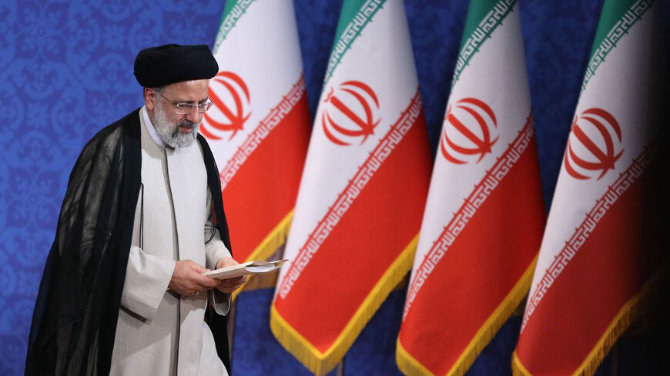
For almost two years, the world powers known as the P5+1 — the UK, France, Russia, China and the US, plus Germany — have been advocating for a revival of the Joint Comprehensive Plan of Action, which is also known as the Iran nuclear deal. But after several rounds of negotiations, which did not bring any positive results, the international community does not appear to have any articulate agenda or alternative plan to adequately address Iran’s nuclear program and defiance.
The main problem is that time is on the side of the Iranian leaders. Time always plays a critical role in talks. In other words, time can impact the basic processes of negotiators’ cognition and motivation. As a result, the more a negotiating party is constrained by time, the more likely it will be to make concessions in order to reach an agreement.
Due to the fact that time is on the side of the Iranian regime, the Raisi administration has shown no sense of urgency in returning to the negotiations.
Meanwhile, the Iranian regime has gradually made nuclear advancements and has now reached a significant point. The Iranian authorities first began increasing uranium enrichment to 20 percent. Then, the Iranian parliament passed a law requiring the government to expel the International Atomic Energy Agency’s nuclear inspectors. Since then, the regime has raised its uranium enrichment level to 60 percent, edging closer to weapons-grade levels.
Such progress in their nuclear program enhanced the Iranian leaders’ leverage vis-a-vis the world powers. This is why the Iranian authorities have not been completely secretive regarding their nuclear program’s advances this time around. For example, while the regime was holding indirect nuclear talks with the Biden administration, Mohammed Bagher Qalibaf, Iran’s parliamentary speaker, boasted about Tehran’s ongoing nuclear activities, stating: “The young and God-believing Iranian scientists managed to achieve a 60 percent-enriched uranium product. I congratulate the brave nation on this success.”
In the next phase, the regime reached a dangerous stage in its nuclear program by producing enriched uranium metal. There are no civilian purposes for producing uranium metal. The IAEA, the UN’s nuclear watchdog, previously warned that the Iranian regime had informed the agency that uranium oxide “enriched up to 20 percent U-235 would be shipped to the R&D laboratory at the fuel fabrication plant in Esfahan, where it would be converted to UF4 (uranium tetrafluoride) and then to uranium metal enriched to 20 percent U-235, before using it to manufacture the fuel.”
Progress in their nuclear program has enhanced the Iranian leaders’ leverage vis-a-vis the world powers.
Dr. Majid Rafizadeh
While it seems that many countries agree with the fact that there are no civilian purposes for the latest advances in Iran’s nuclear program, no tangible and concrete action has yet been taken to curb the regime’s progress. The UK, France and Germany previously acknowledged in a joint statement that the Iranian regime “has no credible civilian need for uranium metal R&D and production, which are a key step in the development of a nuclear weapon.”
Last week, the IAEA revealed that it had found uranium enriched to 84 percent in Iran. This is a critical development because the regime is now closer than ever before to weapons-grade. The Iranian authorities continue to claim that their nuclear program is designed for peaceful purposes. But if that is the case, why is the Iranian regime refusing to fully cooperate with the IAEA?
In fact, past evidence regarding Iran’s nuclear file, which is filled with clandestine nuclear activities and sites, points to the idea that the regime wants to become a nuclear-armed state.
The international community cannot afford for the Iranian regime to go nuclear. If the theocratic establishment becomes nuclear-armed, it is likely that nuclear weapons will fall into the hands of its proxy and militia groups. It has already set up weapons factories abroad and manufactured advanced ballistic missiles and other weapons in foreign countries, including Syria.
Since the theocratic establishment is already supplying advanced weapons to its proxies, what would stop it from sharing its nuclear technology to empower these groups, undermine its perceived adversaries’ national security interests, and expand its reach? As a UN report revealed: “An increasing body of evidence suggests that individuals or entities in Iran supply significant volumes of weapons and components to the Houthis.”
In a nutshell, when it comes to Iran’s nuclear program, time is unfortunately on the side of the theocratic establishment. The international community must act immediately to curb Tehran’s nuclear program. The world cannot wait indefinitely for Iran to come back to the negotiating table while the ruling clerics are advancing their nuclear program and getting closer than ever to producing weapons-grade material.
• Dr. Majid Rafizadeh is a Harvard-educated Iranian-American political scientist.
Twitter: @Dr_Rafizadeh












